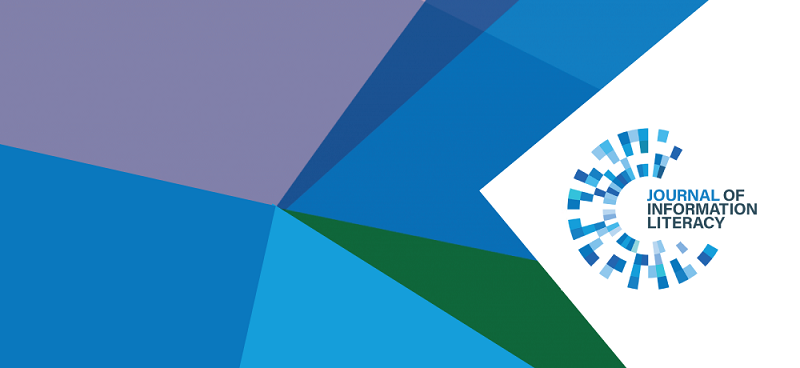This post has been written for us by Alison Hicks, Editor-in-Chief of the Journal of Information Literacy.

I have to confess that I always thought the Journal of Information Literacy (JIL) was doing pretty well on the open and inclusive scholarly publishing front; we have over ten years’ experience as a diamond open access journal, where articles are published freely with no article processing charges, and work is additionally licensed under a Creative Commons Attribution-ShareAlike 4.0 International License. Until, that is, I started to dig more deeply into the recent ACRL report, Open and Equitable Scholarly Communications: Creating a More Inclusive Future, which aims to provide guidance for the design of more social justice-focused scholarly communications systems. Centring on actions that library communities can take to enact meaningful change, this report highlights three major priority areas that its authors consider need to be addressed in the pursuit of more open and equitable practices – people, content, and systems. The section on people highlights the labour involved in the creation of scholarly content. The section on content centres the value assigned to scholarly materials. Lastly, the section on systems focuses on sustainable systems of access and infrastructure.
JIL does a good job on many of the measures that the authors use to assess the state of scholarly communication thanks to the work that my editorial board predecessors have done to maintain our open access status and ensure support for new authors. However, there were some areas where we did not fare as well, including in relation to making our ethical values crystal clear. Faced with these sobering facts, Meg Westbury, the managing editor, and I have spent the last few months attempting to address some of these issues – in some cases, any changes will be very small while others will be more substantial. Many of these updates have been approved by the Editorial Board and will be rolled out over the next few months; others will take slightly longer to make sure we are approaching them sensitively. The most important thing, though, is that we are approaching our editorial work with a renewed critical eye rather than resting on our Sherpa Romeo laurels – and we look forward to making sure that JIL continues to contribute to the creation of the most “open, inclusive, and equitable research environment” possible (ACRL, 2019, p.33).
So, what is new? Taking the ACRL report’s three categories as a guide, below is a list of some of the initial changes and improvements that we will be rolling out over the next few months and beyond.
People
● Acknowledgements: We will be including wording in our Author Guidelines page encouraging authors to formally recognise the work of everyone who has contributed to scholarly output (e.g., crediting contributors such as research assistants) in an acknowledgements section. We recognise that decisions about authorship often obscure scholarly communication labour practices, including invisible labour, and we consider that it is important to raise the visibility of this work, particularly when it is “donated or informally compensated” (ACRL, 2019, p.vii).
● Inclusive Language: We will be including wording in our Author Guidelines page mandating the use of inclusive language in any writing that is published by JIL (such as plural nouns instead of personal pronouns, language preferred by the group, such as Deaf person). We recognise the power of language and the impact that ingrained cultural norms can have on marginalised groups, and we consider that it is important to ensure that the words that we use acknowledge diversity and accord respect. Along the same lines, all references to our peer review process have been relabelled as ‘anonymous’ rather than “blind” as part of our commitment to inclusive language.
● Name Change Policy: We have approved a policy that allows authors to retrospectively update their names or pronouns in any work published in JIL. Authors may change their name for numerous reasons including marriage, divorce, religion, gender identity and other personal reasons. JIL respects the rights of our authors to their identities, and we are committed to ensuring a person’s bibliography is attributable to the same name and/or pronoun. Authors may also update any email addresses, biography photos, and other identifiers that are connected to the change in author name. Changes will be made directly to the article pdf and will be corrected in our indexing and abstracting services.
● Open Peer Review: We are currently experimenting with an open peer review process, where authors and peer reviewers are known to each other. We recognise that peer review is often opaque and may focus on evaluation to the exclusion of constructive critique or the development of ideas. To this end, we are currently experimenting with an open and developmental peer review process in conjunction with FestivIL – with huge thanks to the authors and the peer reviewers for agreeing to participate in this pilot.
Content
● Open Data Sharing: We will be suggesting in our Author Guidelines that any quantitative research is pre-registered using the Open Science Framework, or an equivalent, and that quantitative data produced as part of research is deposited within an Institutional Repository, the Open Science Framework platform, or an equivalent in accordance with any ethical approval given to the study under review. We recognise that the open sharing of quantitative data helps to ensure transparency and reliability, as well as encouraging international collaboration. With thanks to Helena Hollis, PhD student in LIS at UCL, for her help formulating this policy.
Systems
● Accessibility: We will be maintaining a living document detailing the changes we are making to the accessibility of our front-end and back-end systems. Changes that will be implemented include, for example: requiring the use of non-colour-based differentiation points in data visualisation, and mandating the use of descriptive text in URLs. We are also exploring the publication of Word documents and HTML versions of our articles alongside PDFs for accessibility reasons. With thanks to Tom Peach, member of the Editorial Board, for leading and guiding us on these changes.

